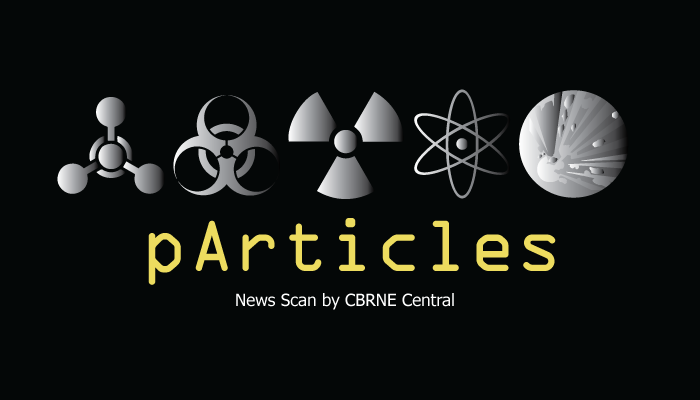Topics in this issue include JIEDDO deploying to Iraq, stockpiling Ebola personal protective gear, Iran’s uranium stockpile.
In This Article
Pentagon Counter-IED Group Heads to Iraq as Attacks Surge
The Pentagon’s Joint IED Defeat Organization (JIEDDO) is preparing to deploy members to Iraq where 145 roadside bomb attacks carried out by Islamic State militants killed more than 804 people and wounded more than 1,287 last month, according to officials and documents. Defense One >>
Dempsey Discusses Iran’s Nuclear Ambitions
“What really makes the nuclear capability of Iran an issue is not centrifuges and ballistic missiles, but rather the human capital that has the expertise to regenerate it. Ultimately, the Iranian government itself would have to take a decision to move away from that aspiration entirely, and that’s why the diplomatic track is actually the right track.” Defense.gov >>
Iran’s Uranium Stockpile Grows Before Deadline for Nuclear Deal
Iran’s stockpile of low-enriched uranium gas has grown by 8 percent to nearly 8.4 tonnes in about two months, U.N. atomic inspectors say, an amount world powers probably will want to see cut under any nuclear deal with Tehran. The IAEA issued a confidential report on Iran to IAEA member states on Friday, less than three weeks before a Nov. 24 deadline for Iran and six world powers to resolve their stand-off over Tehran’s atomic activities. Reuters >>
U.S. Military Ebola Mission Will Probably Last 18 Months
The military mission to combat Ebola in West Africa will probably last until 2016, according to the chairman of the Joint Chiefs of Staff. There are 1,934 Defense Department personnel deployed to the region — 1,759 in Liberia and 175 in Senegal — to participate in Operation United Assistance. Officials have said that that presence could increase to about 4,000. Stars & Stripes >>
How Many Soldiers Were Exposed to Chemical Weapons in Iraq?
The Pentagon failed to recognize the scope of the problem, track it adequately or offer proper treatment to those who may have been injured. The stories of service members who believed they were exposed to chemical weapons, and ignored by their own military, are heartbreaking. NY Times >>
NRC Science 101: How a Nuclear Reactor Generates Electricity
How does a nuclear reactor generate electricity? Well — it doesn’t, really. Let’s begin at the end and see how it all fits together. U.S. NRC >>
U.S. CDC Boosts National Stockpile of Ebola Protective Gear
The U.S. Centers for Disease Control and Prevention is increasing its national stockpile of protective gear for domestic hospitals handling Ebola patients. Some U.S. orders of protective equipment have been backlogged amid growing domestic demand, as manufacturers prioritize a flood of requests from aid agencies trying to curb the outbreak in West Africa. Reuters >>
Foundation of US Nuclear System Showing Cracks
The foundation of America’s nuclear arsenal is fractured, and the government has no clear plan to repair it. The cracks appear not just in the military forces equipped with nuclear weapons but also in the civilian bureaucracy that controls them, justifies their cost, plans their future and is responsible for explaining a defense policy that says nuclear weapons are at once essential and excessive. Associated Press >>
Obama’s Record on Nuclear Arms
The devastation from any use of nuclear weapons is intolerable. It must be American policy to prevent any use. This requires two objectives: to reduce the total number of nuclear weapons in the world and to dissuade any power from using such weapons while they exist. NY Times >>
How Three Veterans Uncovered the Iraq War’s Biggest Untold Story
John Ismay was in the business of tracking explosives and bombs in surge-era Iraq. His first week there introduced him to an open secret: Coalition forces routinely found chemical weapons, and within a month, a soldier in his unit suffered a mustard blister on his leg the size of his hand. The Atlantic >>
Iran Says Nuclear Deal Within Reach by November 24, No Alternatives
Iran sees no alternative to a diplomatic settlement with six world powers on its nuclear program and believes both sides are resolved to reach a deal by a self-imposed Nov. 24 deadline, its deputy foreign minister said on Saturday. Reuters >>
When Not Serving Customers, Local Store Manager Serves His Country
The 45-year-old New Orleans native enlisted in the National Guard in 1986 and has served continuously ever since. His specialty is emergency preparedness, and he’s second in command for a CBRN unit out of Gadsden. Trussville Tribune >>


